Marine Life & Conservation Blogs
Frogfish: what do you know about them? (Watch Video)
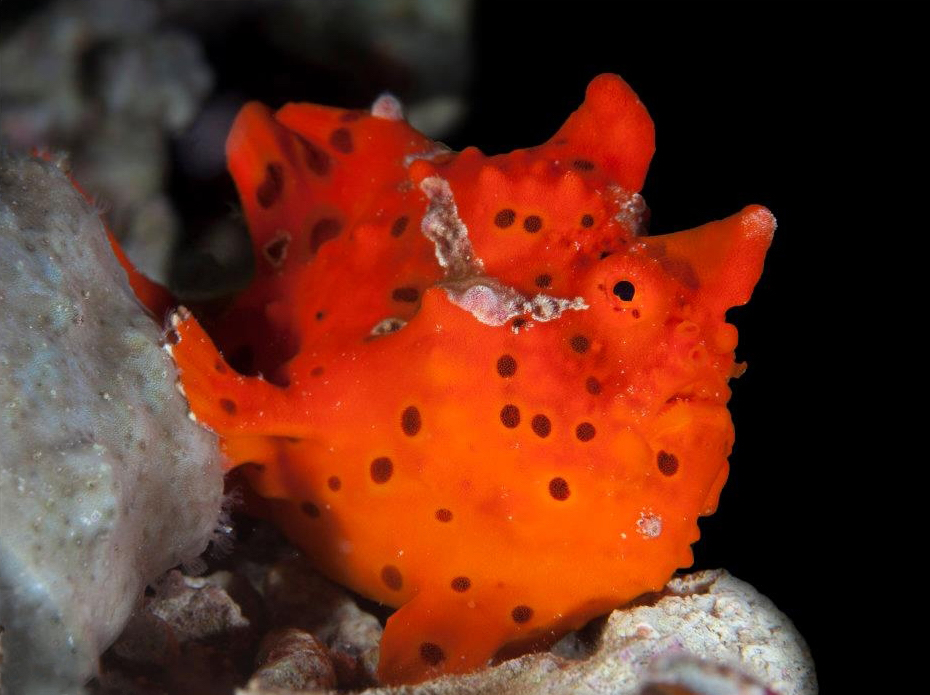
The first in an exciting new series of blogs introducing some of the amazing marine life you can encounter at Magic Resorts in the Philippines…
Some interesting facts!
The Frogfish is an interesting creature, not only because of its name and appearance, but especially because of its abilities.
The squat sitting position of this special creature is the reason they are called ‘Frogfish’. Frogfish tend not to swim too often, however, when they do swim, they have an interesting swimming technique. They use their tail fin but to increase their speed, they will gulp water and propel it out through their gills to move forward. Although most species are poor swimmers, they are categorized as fish because of their gills and fins.
In some areas of the world this creature is called an Anglerfish, which will make more sense after reading this blog!
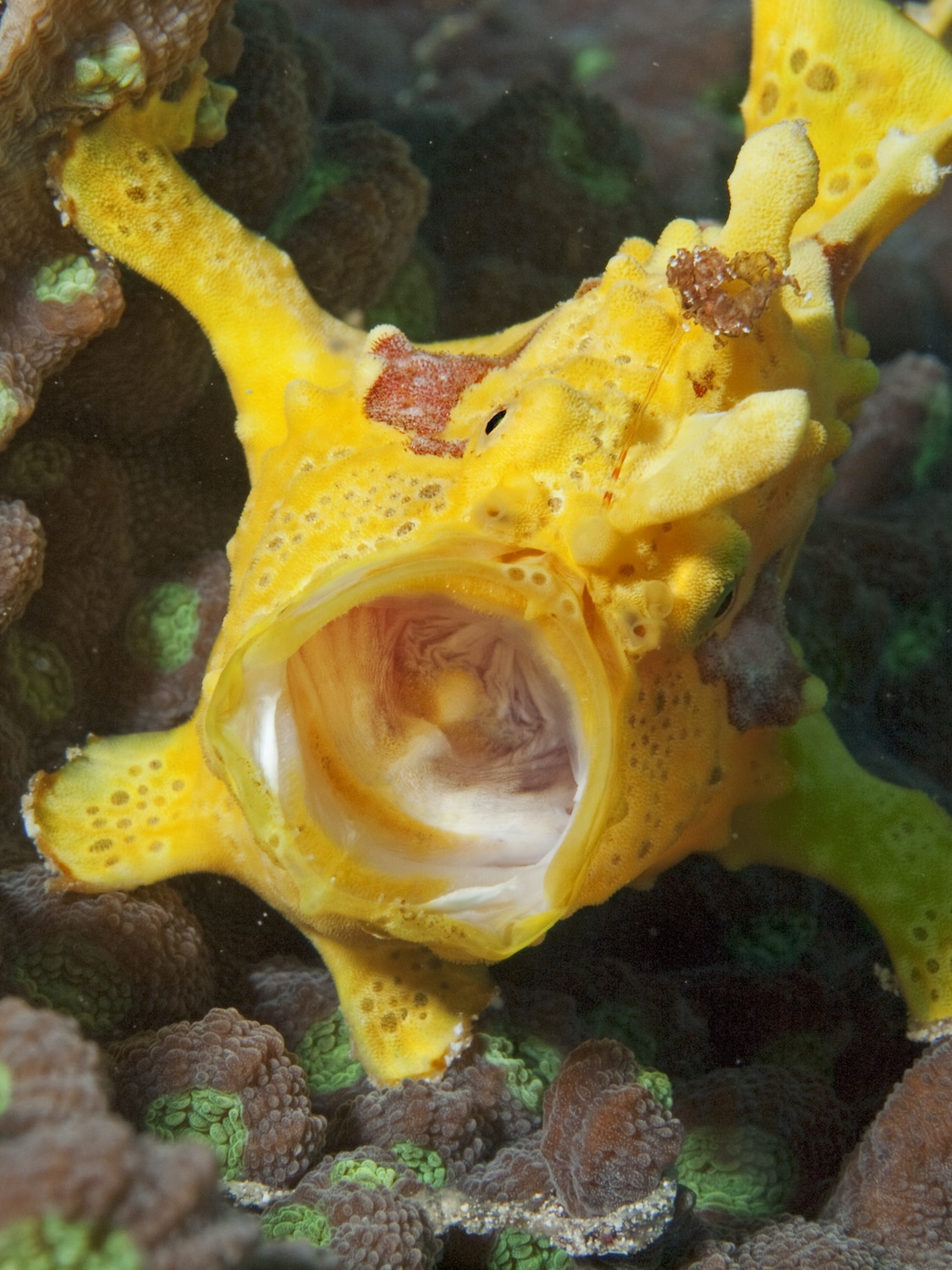
Frogfishes are characterized by their odd appearance. Honestly, did you notice you were staring at a frogfish the first time you saw one? Their camouflage skills are incredible! Frogfishes can adapt to simple backgrounds, but are also able to grow bumps, warts, hairs and flaps! That’s the reason it’s hard to identify them. Different species can look similar because of this ability. You might think you’re staring at a Painted Frogfish when it’s actually a Warty Frogfish. Simply amazing!
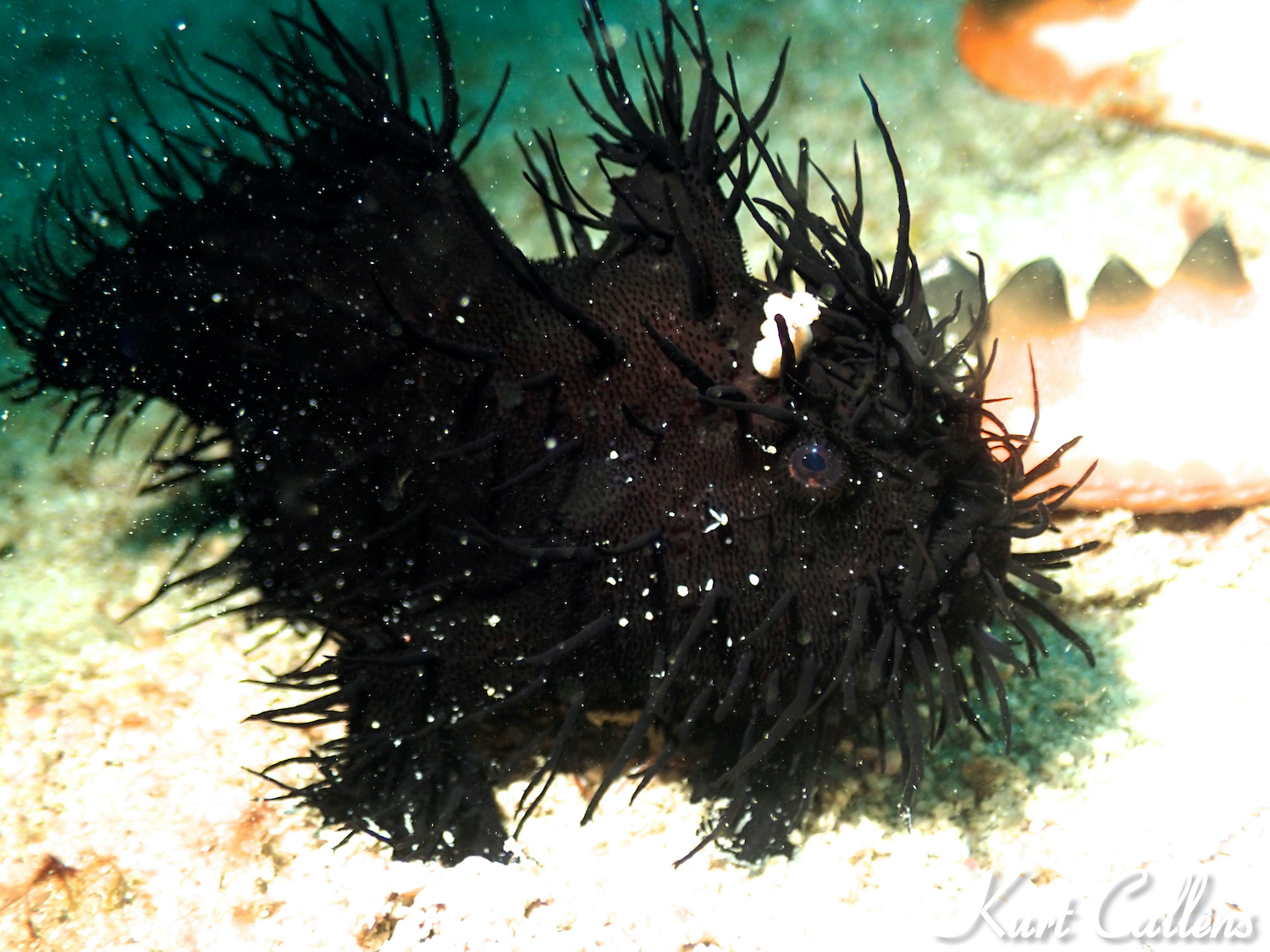
Furthermore, Frogfishes love to go fishing. Yes, a fish that goes fishing! They have their own fishing gear to catch their preys: they have a rod and a lure on their heads (the first of their dorsal spines). They normally find themselves a convenient spot, stay there and hunt. They are one of the best ambush predators of all fishes: they can catch a fish out of a school without the other fish noticing it!
With their ability to camouflage and adjust themselves to their environment, they can stay in the same spot for quite a while, keeping themselves safe from other predators!
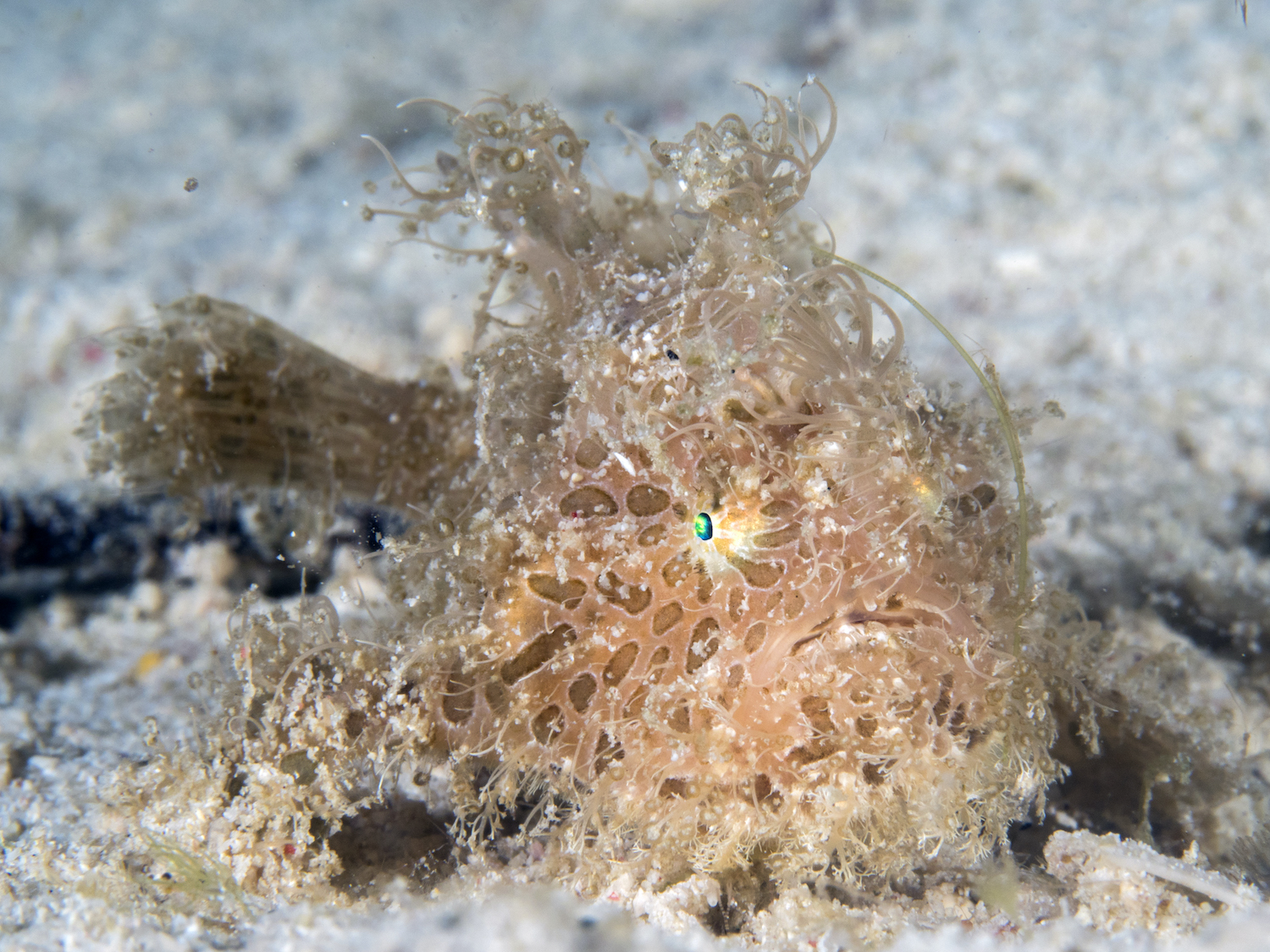
So, calling them Anglerfish now makes more sense, right?
Some general facts!
- There are 47 different, acknowledged species of Frogfishes. Can you name them all?
- Frogfishes vary in size from 0.5 inch (the Randall’s Frogfish) to 20 inch (the Commerson’s/Giant Frogfish).
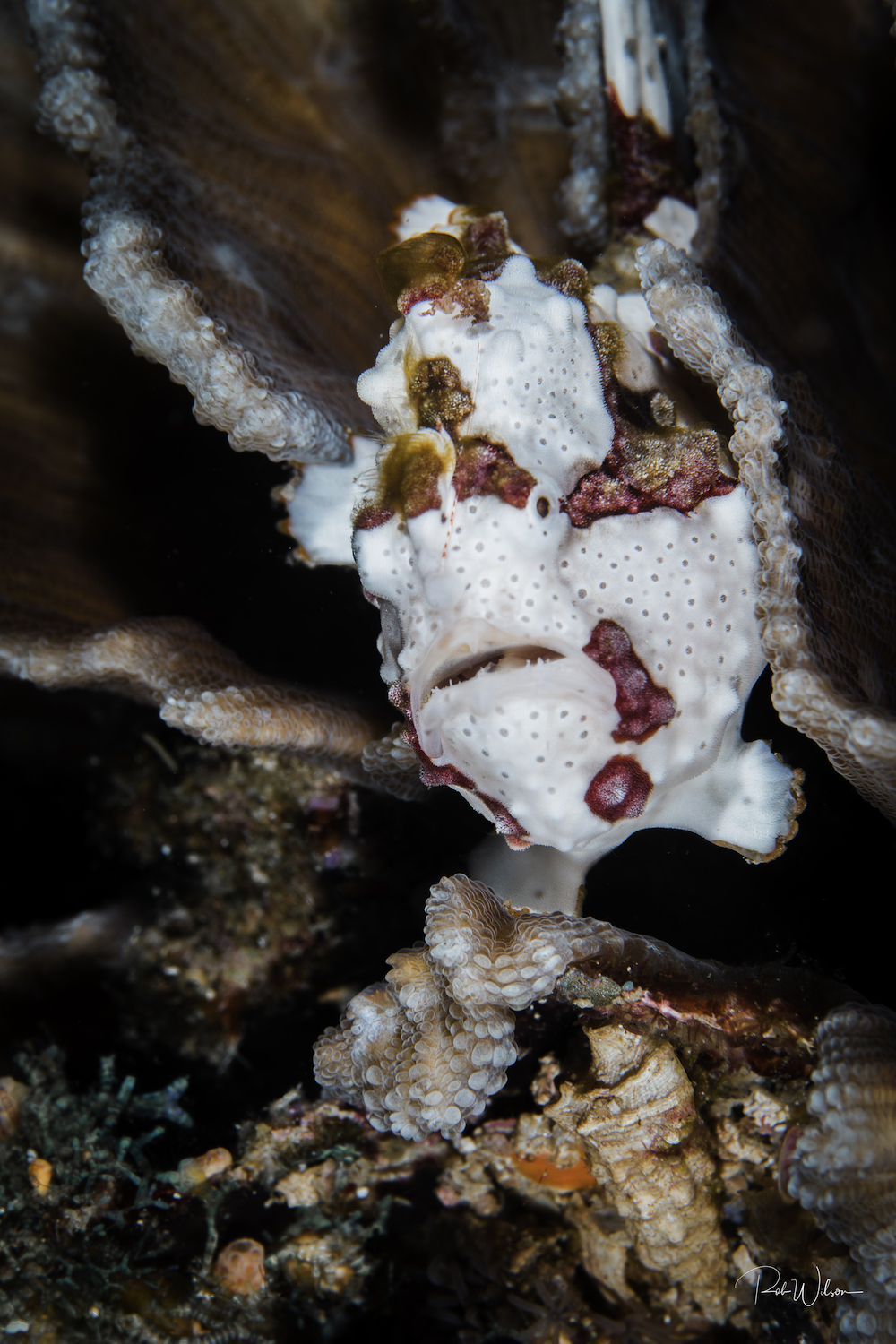
- Frogfishes can be found in many places: coral reefs, seagrass beds or a sandy bottom.
- The mouth of a frogfish can expand up to 12 times its original size and swallow a pray that’s twice as big as its own body!
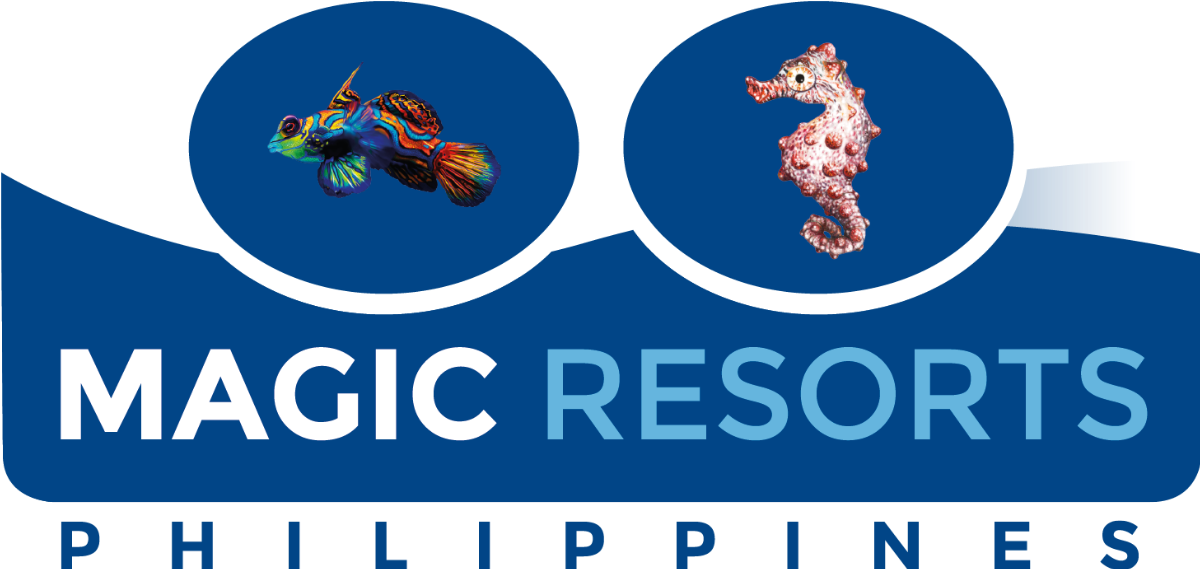 Visit Magic Oceans Anda, Bohol and Magic Island Moalboal, Cebu… find out more at www.magicresorts.online.
Visit Magic Oceans Anda, Bohol and Magic Island Moalboal, Cebu… find out more at www.magicresorts.online.
Blogs
Saba’s Plan for a Coral Comeback

Saba has an exciting new initiative to restore its coral reefs. This new project, running from 2024 to 2026, will focus on reviving key species in the island’s underwater ecosystems. With a collaborative team from the Saba Conservation Foundation (SCF) and Van Hall Larenstein (VHL) University of Applied Sciences, the project aims to restore both corals as well as sea urchins.
This initiative is centered around coral restoration, specifically reviving two essential coral species—staghorn coral (Acropora cervicornis) and elkhorn coral (Acropora palmata). By mapping parent colonies and using a technique known as coral gardening, SCF will create and maintain coral nurseries. These corals will eventually be outplanted at key reef sites around Saba to not only expand the number of coral colonies, but also provide essential fish habitat. The project focusses on installing coral nurseries, training staff with the newest techniques and starting with the restoration of key reef sites.

Reef Cleaners to the Rescue
It’s not just corals getting a makeover—this project also shines a spotlight on the essential role of grazers, particularly sea urchins. VHL is leading the charge on cultivating and restocking two key sea urchin species, West Indian sea egg (Tripneustes) and long-spined sea urchin (Diadema), known for their ability to keep algae in check. By removing algae, which are important competitors of corals, they help the coral to thrive. By restoring these “reef cleaners,” Saba’s project will give corals the breathing room they need to grow, setting the stage for a healthier, more balanced marine ecosystem.
From Tiny Urchins to Big Goals
The project will be funded as part of the Dutch Government’s Nature and Environment Policy Plan (NEPP) 2020-2030 for the Caribbean Netherlands, a comprehensive initiative aimed at conserving and restoring the unique natural environments of the Dutch Caribbean islands, including Saba, St. Eustatius, and Bonaire. This project is aiming for big milestones: build and maintaining coral nurseries, the expansion of urchin cultivation facilities, and the creation of a dedicated research center. By 2026, the project hopes to ramp up coral and grazer restoration, with the ultimate goal of extending these efforts across the Dutch Caribbean. By linking local initiatives to broader regional goals, Saba’s restoration project promises to leave a lasting impact on both the environment and the community.
Find out more about the DCNA at dcnanature.org.
Blogs
Reef-World marks two decades of marine conservation: strengthening impact amid coral reef threats

Empowering ocean stakeholders to tackle future challenges and ensure the survival of coral reefs and humanity
2024 marks the 20th Anniversary of The Reef-World Foundation’s tireless efforts for global coral reef conservation. The UK charity is the international coordinator of the UN Environment Programme’s Green Fins initiative, known as the leading voice in sustainable marine tourism. Today, Reef-World released its 2023-2024 Impact Report outlining a year of substantive growth and impact in its marine conservation programmes.

Impact Report Highlights:
- Impressive improvements in environmental behaviours to protect coral reefs by the marine tourism industry as the global participation of Green Fins increases.
- Continued capacity building for government and NGO staff to effectively manage marine tourism activities in Asia, Caribbean and Red Sea regions.
- For the first time in Green Fins’ 20-year history, tourism operators have achieved ‘Best Environmental Performer’ status by demonstrating the lowest possible environmental impact in their environmental assessments. In 2024, three dive operators achieved this challenging milestone.
- Significant increases in global participation of Reef-World’s innovative digital conservation tools.
- 138 Green Fins dive operator members achieved the strict threshold for PADI Eco Center recognition.
- Developed four new educational materials and translated two into 16 languages to support the marine tourism industry in achieving sustainability targets.
- Establishing a new Reef-World Development strategy and recruiting new roles – Development and Programmes Managers.
- Reef-World’s board welcomes new Chair and Trustees strengthening organisational leadership.

Reef-World started as a one-person mission to inspire and empower communities to act in conserving and sustainably developing coral reefs and related ecosystems. Today, the team of 12 continues to meet this mission by inspiring and empowering the global marine tourism community to be exemplary sustainability leaders by using the Green Fins guidelines and tools to simultaneously use and protect the world’s precious reefs.
In April 2024, the fourth global coral reef bleaching event was confirmed. Reef-World’s work has never been more urgent as the marine environment, and the benefits they provide humanity, continue to be eroded by global threats. The reduction of local threats, like those from the marine tourism industry, is an essential step to ensuring a future where coral reefs survive and continue to support the millions of people who depend on their ecosystem benefits. Reef-World’s work buys time for coral reefs and related ecosystems to be resilient to the impacts of global threats.
“Right now our corals are facing the greatest fight of their existence as the terrifying predictions of the steps towards their complete extinction are starting to come true. But all is not lost, reefs are resilient and they have existed on this planet for millions of years. We must take action now, to buy time for reefs by reducing threats facing them and allowing them to react and adjust to the changing environment they need to survive in.” – Chloe Harvey, Executive Director
Looking Forwards:
Like coral reefs, the Reef-World team needs to be resilient in the face of the complex challenges of the conservation sector. Reef-World has invested significantly in developing a Culture of Care to ensure the well-being of its team on a daily basis, continuing to be an exemplary employer to enable its team to best achieve the mission for coral reef conservation.
With the foundations of a Culture of Care and organisational development laid, Reef-World is emerging from the end of a natural organisation life cycle, that brings the challenges of growth and scale, stronger than ever. With a new strategy in place to generate much needed resources, Reef-World is excited for the opportunities to leap forward, continue to scale our impact and lean into new innovations and untapped opportunities for marine conservation.
We continually strive to become a forward-thinking organisation that delivers on our goals and commitments to our stakeholders with fresh approaches and not being afraid of steering away from a “normal approach.” This approach is not only applied to our programmes of work but also internally and carries over to our Culture of Care for our team.” — JJ Harvey, Operations Director

The Reef-World Foundation is immensely grateful for the continued support of its grant funders: UN Environment Programme, IUCN’s Blue Natural Capital Financing Facility, Adventure Travel Conservation Fund, PADI Aware Foundation, and World Nomads Footprints Program.
Reef-World would also like to express its gratitude to international partners whose vital support has resulted in significant tangible benefits for our work and mission: PADI; Professional SCUBA Schools International (PSS); Explorer Ventures; 1% for the Planet; ZuBlu; Snorkel Venture, GSTC; Dive O’Clock; Seven Dragons; DiveAssure and Eco Beach, without whom these achievements would not be possible.
The full 2023–2024 Annual Impact Report is available on Reef-World’s website.
-

 News2 months ago
News2 months agoIconic SS United States to become the World’s Largest Artificial Reef
-

 News3 months ago
News3 months agoBook Review – 52 Assignments: Underwater Photography
-

 Gear News3 months ago
Gear News3 months agoDYNAMICNORD – New German diving brand enters the British market
-

 News3 months ago
News3 months agoExploring Cenote El Pit: A Diver’s Dream
-

 Gear News3 months ago
Gear News3 months agoTry BARE drysuits (and maybe even win one!) this Friday with Sea & Sea at North West Dive Fest
-

 Marine Life & Conservation3 months ago
Marine Life & Conservation3 months agoBook Review: Coral Triangle Cameos
-

 Blogs2 months ago
Blogs2 months agoDive the Egyptian Red Sea this Autumn with Regaldive
-

 News3 months ago
News3 months ago2024 Ocean Art Underwater Photo Competition Announced















